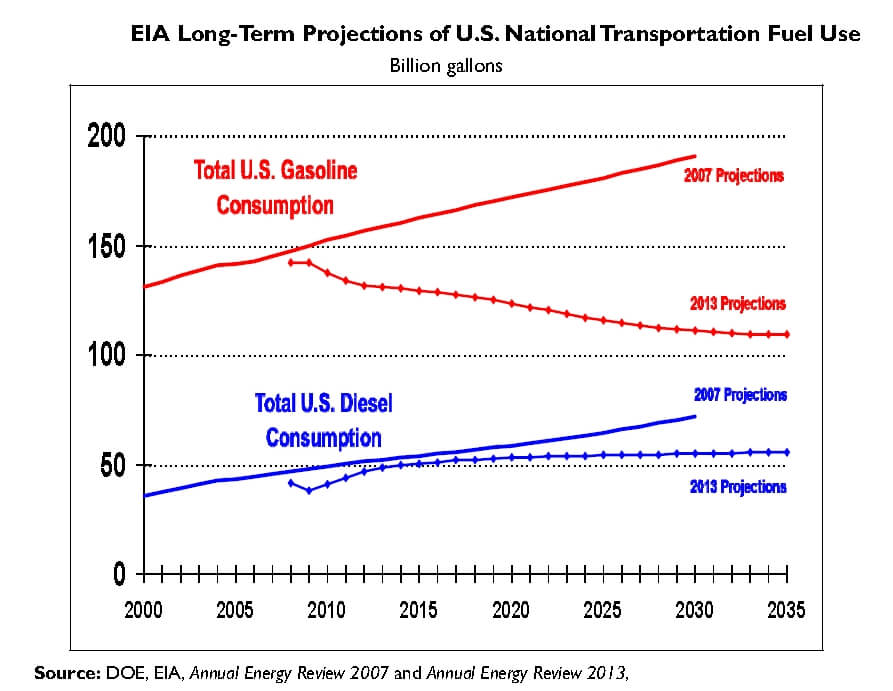It’s been a while since I’ve penned anything about this topic, but l was asked this question by a friend recently. This generated a thought-provoking conversation which quickly unfolded into a more serious discussion about the long-term value of requiring ethanol targets for the national fuel supply.
When the Renewable Fuel Standard (RFS) was penned back in the mid-2000s, the price of gasoline was over $3.00 a gallon and the United States was a large importer of oil. The goal of the legislation was threefold; to provide long term energy security for the country, to lower vehicle emissions, and to support farmers by providing an alternative for corn. To accomplish these objectives, the RFS mandates both the type and the amount of biofuels that must be used. It requires importers, refiners, and fuel blenders to sell a certain volume of biofuels.

Source: US Department of Energy.
At the time, the RFS made a lot of sense, but things have certainly changed in last 10 years. Not only has the country nearly doubled production of crude oil, but the cost of gasoline at the pump is nearly half of that compared to 2007. Couple this with the fact that consumption of refined products has flattened from the likes of CAFE standards and consumers moving to smaller vehicles. In fact, today there is more ethanol than can be blended into the gasoline supply.

Source: American Encore blog
So where does this end up? I certainly don’t know the final outcome because there are vocal parties both for and against using ethanol. Perhaps a more balanced market-based approach makes sense? For example, there are cars that require higher-grade fuels and ethanol is a great octane enhancer.
Refiners already have the infrastructure in place and could continue to blend, albeit at lower volumes. In places where consumers are asking for more concentrated ethanol blends like E15 or E85, suppliers could oblige based on market signals. Without this, it seems that ethanol is just being produced because it’s required and not for reasons that meet today’s fuel supply realities.
From Jim: You can connect and interact with other refining and alternative energy experts in the Refining and Alternative Energy groups in the Emerson Exchange 365 community.





